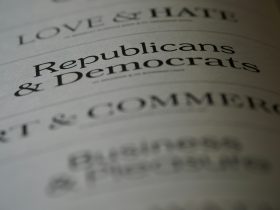Aiexpress – A recent incident involving a Tesla Cybertruck that exploded in Las Vegas has raised significant privacy concerns, highlighting the increasing role of data collection in modern vehicles. The explosion, which occurred on New Year’s Day in front of the Trump International Hotel, resulted in the driver’s death and injuries to seven others. Tesla’s rapid use of vehicle data to assist law enforcement in tracking the driver’s movements has prompted a deeper conversation about privacy rights in the age of connected cars.
The Role of Tesla’s Data in Solving the Incident
Within hours of the explosion, Tesla was able to provide police with critical information about the truck’s movements, including recharging stops in multiple states, such as Colorado, New Mexico, and Arizona. This data, gathered from the truck’s onboard software and charging stations, not only helped authorities track the driver, identified as Matthew Livelsberger, but also confirmed that the explosion was caused by explosives in the truck, not a mechanical failure.
Las Vegas Metropolitan Police Department Sheriff Kevin McMahill thanked Elon Musk’s company, saying, “He gave us quite a bit of additional information.” The speed and accuracy with which Tesla provided the data proved valuable to the investigation, shedding light on the potential for automotive data to assist law enforcement in solving crimes.
Privacy Concerns and the Increasing Role of Surveillance
While Tesla’s swift action was applauded by authorities, privacy experts are raising alarms about the growing surveillance capabilities of modern vehicles. Jodi Daniels, CEO of Red Clover Advisors, emphasized the ethical dilemma posed by cars that collect vast amounts of personal data. “You might want law enforcement to have the data to crack down on criminals, but can anyone have access to it?” she questioned. “Where is the line?”
Many modern vehicles, especially those equipped with self-driving capabilities, track drivers’ locations, driving patterns, and even personal information synced from smartphones, including contacts, call logs, and texts. This data collection is becoming a norm, but its implications for privacy are far-reaching.
David Choffnes, executive director of the Cybersecurity and Privacy Institute at Northeastern University, warned about the potential for abuse, noting, “When something bad happens, it’s helpful, but it’s a double-edged sword. Companies that collect this data can abuse it.”
The Risk of Data Misuse by Automakers
Tesla is not alone in facing scrutiny over its data practices. General Motors was sued in August by the Texas attorney general for allegedly selling data from 1.8 million drivers to insurance companies without their consent. Additionally, Tesla itself faced criticism after it was revealed that employees had shared sensitive footage from in-car cameras, including videos of road rage incidents and, in some cases, nudity, between 2019 and 2022.
While Tesla claims on its website that it follows strict privacy guidelines to protect customer data, the company’s privacy policies remain a topic of debate. “No one but you would have knowledge of your activities, location, or a history of where you’ve been,” the company states, emphasizing that user information is kept “private and secure.”
The Need for Stronger Privacy Regulations
With no federal laws specifically regulating car data, privacy laws are a patchwork of state-level regulations. This inconsistency has left consumers vulnerable to potential misuse of their personal information. Jodi Daniels believes new national laws are urgently needed to keep pace with technological advances in automotive data collection.
“I think law enforcement should have access to data that can help them solve things quickly,” Daniels stated. “But we have a right to privacy.”
As vehicles continue to evolve into interconnected systems, balancing the need for law enforcement access with consumer privacy rights will remain a critical issue for lawmakers and the public alike. The Tesla Cybertruck explosion serves as a poignant reminder of the growing role of vehicle data in society—and the difficult questions that accompany this technological shift.













Leave a Reply